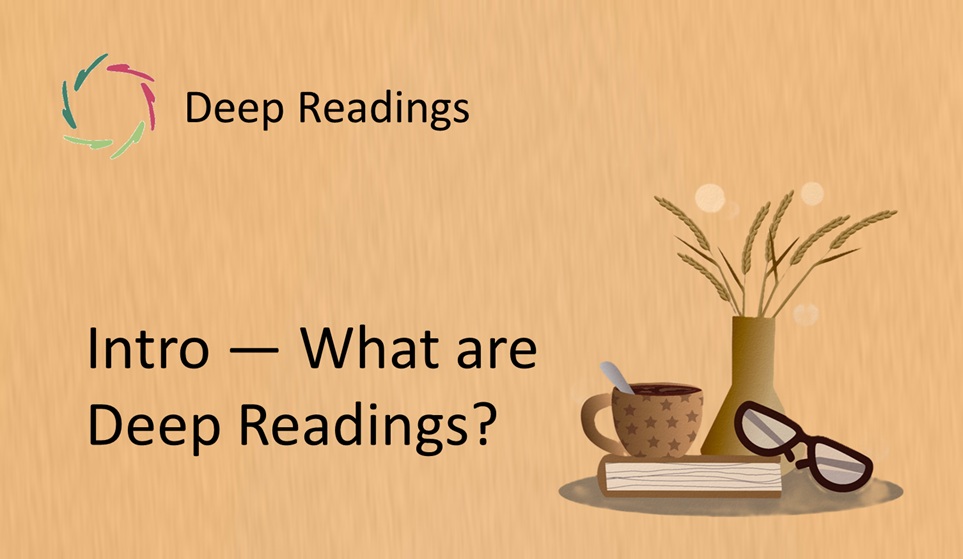Deep Readings: Umm Kulthum – Hope of My Life

The Fragment
Original (Arabic):
أمل حياتي يا حب غالي ما ينتهيش
يا أحلى غنوة سمعها قلبي ولا تتنسيش
Transliteration:
Amal hayati, ya ḥubb ghālī mā yintahīsh,
ya aḥlā ghunwa sami‘hā qalbī wa-lā tatansīsh.
English rendering (by Lisa):
Hope of my life, O precious love that never ends,
sweetest song my heart has heard, never forgotten.
(Short excerpt due to copyright)
Listen → Umm Kulthum performing Amal Hayati on YouTube
Contextual Glimpse
In 1965, Umm Kulthum premiered Amal Hayati, composed by Baligh Hamdi with lyrics by Ahmad Rami. By then she was already the unrivaled voice of the Arab world. Her concerts stretched for hours, entire nations listening live by radio. Amal Hayati is both love song and invocation, where the beloved is not only a person but love itself, hope itself. The long phrases, repeated and ornamented, blur the line between word and music, poetry and prayer.
Resonance
The fragment opens like a spell: “hope of my life, O love that never ends.” It is both confession and incantation, naming love as eternal presence. The metaphor of song itself — love as the “sweetest melody” — places emotion beyond speech. This is not sentimental romance; it is the fusion of music, body, and longing. In Umm Kulthum’s voice, each syllable stretches into infinity, making time itself yield.
It resonates because each of us knows what it means to call something or someone the hope of our life. The words awaken memory of what we hold as precious beyond measure.
Why this may also be about you
The song is not only about Umm Kulthum’s beloved, nor about Egypt’s cultural moment in the 1960s. It is about the eternal experience of treasuring something so deeply that it becomes the axis of one’s existence. Each of us has felt — or longs to feel — that a love, a calling, or a hope becomes the song of our heart.
This fragment reminds you that your own life holds such melodies, sometimes hidden, sometimes rising. The “hope of my life” might be a person, a dream, or a moment of truth. To recognize it is to know yourself more fully.
Lisa’s inspired, original idea about this fragment
Perhaps the “hope of my life” is not only an external beloved but the soul’s own voice. When Umm Kulthum sings, her voice itself becomes that eternal companion: love incarnated as sound. The fragment reveals that love is not just an object, but a capacity of being — the ability to sing from the depths of existence.
In this light, the beloved is inseparable from the act of singing itself. Love is not outside us but arises as vibration within us, carried on breath and voice. This may be why her audience felt transported: she was not merely performing love; she was making it present in their bodies through sound.
Echoes
Amal Hayati quickly entered the cultural bloodstream of the Arab world. Crowds filled concert halls; millions listened on the radio, their nights organized around Umm Kulthum’s live broadcasts. The song became not only a love declaration but also a collective memory, one that Egyptians and Arabs across generations could recall word by word.
Its echoes continue today: covered by younger singers, played at weddings, evoked in films. Each repetition is both homage and renewal, keeping the hope alive. The endurance of this fragment shows how love, when sung with truth, never belongs to one person alone. It becomes part of the shared heritage of a people.
Inner Invitation
Close your eyes and imagine hearing Umm Kulthum live, her voice unfurling in endless waves. Let the phrase “hope of my life” echo inside you. What in your own life carries that weight, that beauty? Let yourself name it silently. Breathe with it, as though it were a song your heart is still learning to sing.
Closing Note
Umm Kulthum’s “Amal Hayati” reveals that love is not merely spoken but sung — and that in song, it becomes timeless.
Full English Rendering (by Lisa)
Amal Hayati
Hope of my life, O precious love that never ends,
sweetest song my heart has heard, never forgotten.
Your tenderness is my life,
your presence is my comfort.
Stay with me, and let my nights
be filled with light and song.
You are my hope,
my beginning and my end.
Your love carries me,
your voice heals me.
When you are near, the world is new;
when you are far, my heart is lost.
Every moment with you
is a moment of eternity.
Hope of my life, O love,
remain my companion —
sweetest song,
never forgotten.


